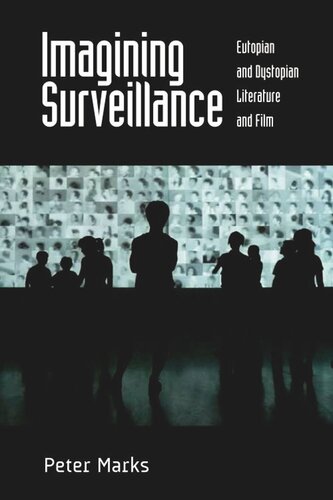

Most ebook files are in PDF format, so you can easily read them using various software such as Foxit Reader or directly on the Google Chrome browser.
Some ebook files are released by publishers in other formats such as .awz, .mobi, .epub, .fb2, etc. You may need to install specific software to read these formats on mobile/PC, such as Calibre.
Please read the tutorial at this link: https://ebookbell.com/faq
We offer FREE conversion to the popular formats you request; however, this may take some time. Therefore, right after payment, please email us, and we will try to provide the service as quickly as possible.
For some exceptional file formats or broken links (if any), please refrain from opening any disputes. Instead, email us first, and we will try to assist within a maximum of 6 hours.
EbookBell Team

4.0
6 reviewsImagining Surveillance presents the first full-length study of the depiction and assessment of surveillance in literature and film. Focusing on the utopian genre (which includes positive and negative worlds), this book offers an in-depth account of the ways in which the most creative writers, filmmakers and thinkers have envisioned alternative worlds in which surveillance in various forms plays a key concern. Ranging from Thomas More’s genre-defining Utopia to Spike Jones’ provocative film Her, Imagining Surveillance explores the long history of surveillance in creative texts well before and after George Orwell’s iconic Nineteen Eighty-Four. It fits that key novel into a five hundred year narrative that includes some of the most provocative and inventive accounts of surveillance as it is and as it might be in the future. The book explains the sustained use of these works by surveillance scholars, but goes much further and deeper in explicating their brilliant and challenging diversity. With chapters on surveillance studies, surveillance in utopias before Orwell, Nineteen Eighty-Four itself, and utopian texts post-Orwell that deal with visibility, spaces, identity, technology and the shape of things to come, Imagining Surveillance sits firmly in the emerging cultural studies of surveillance.